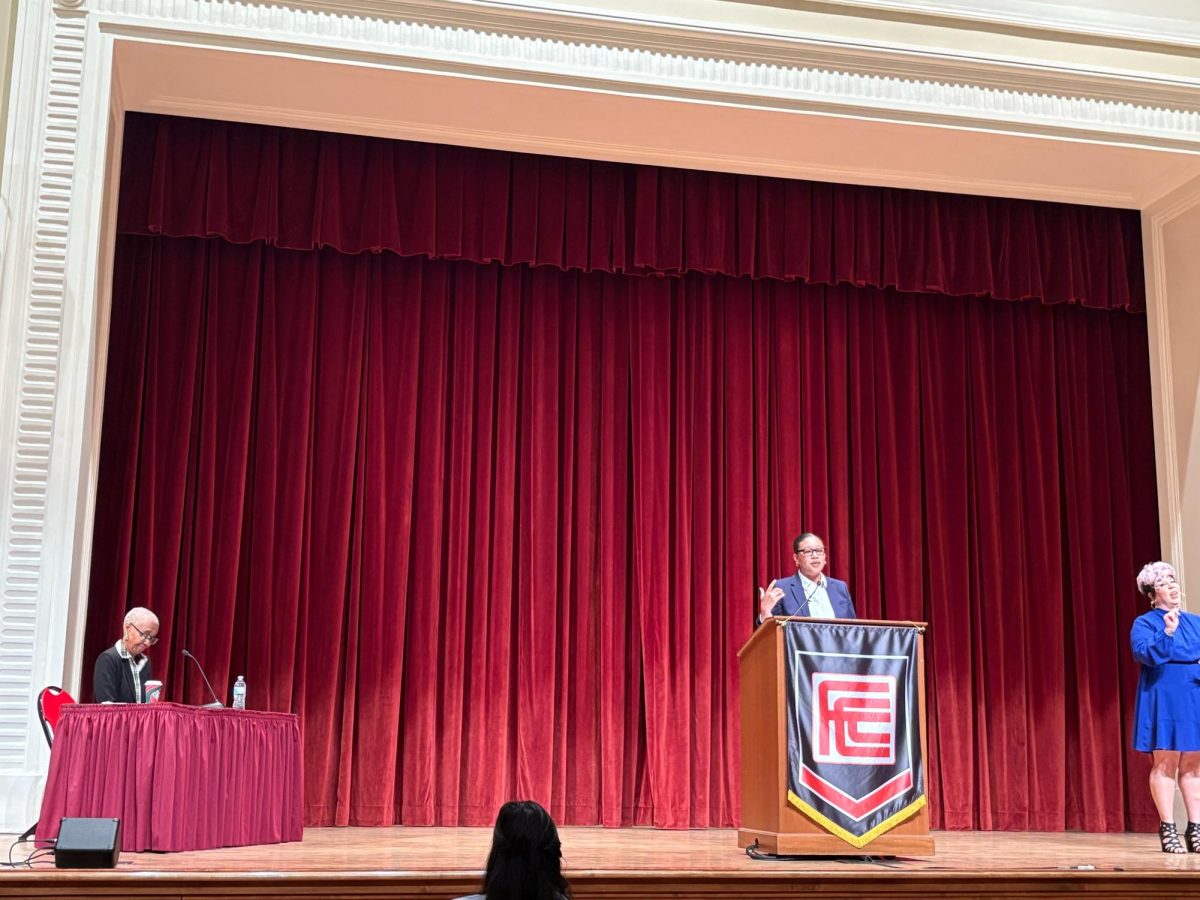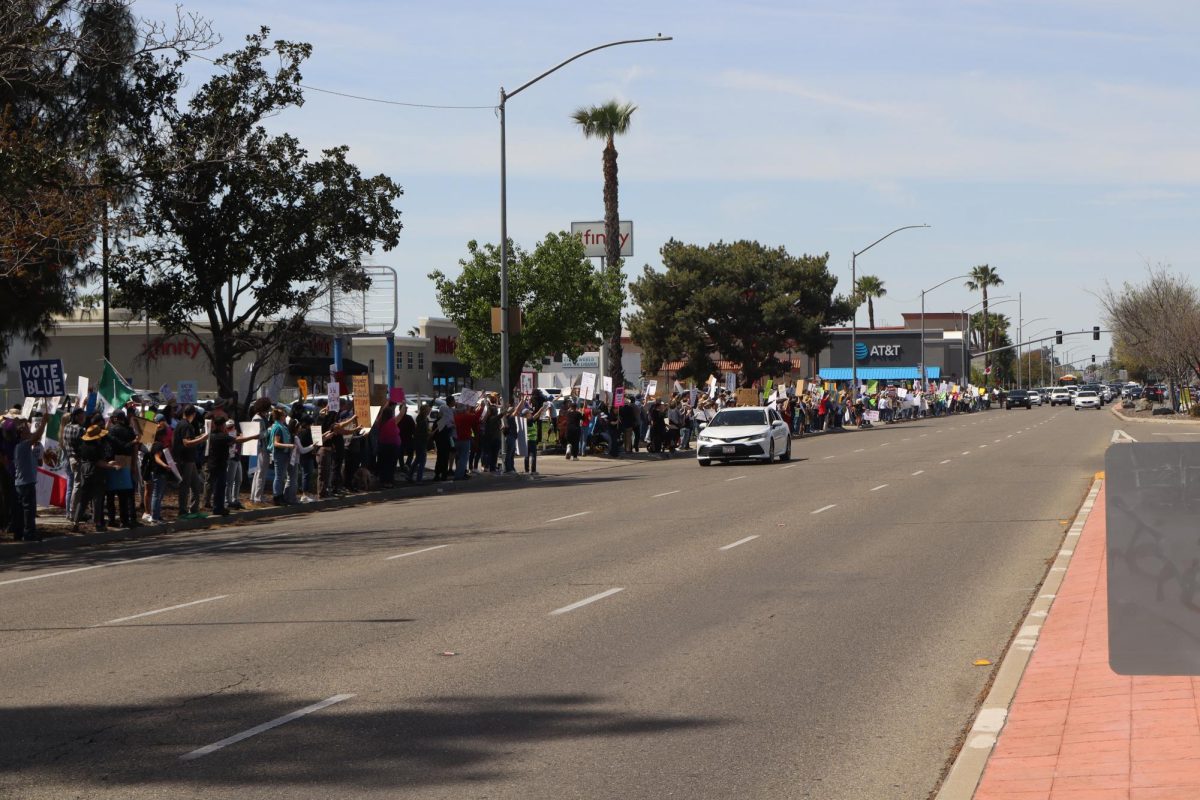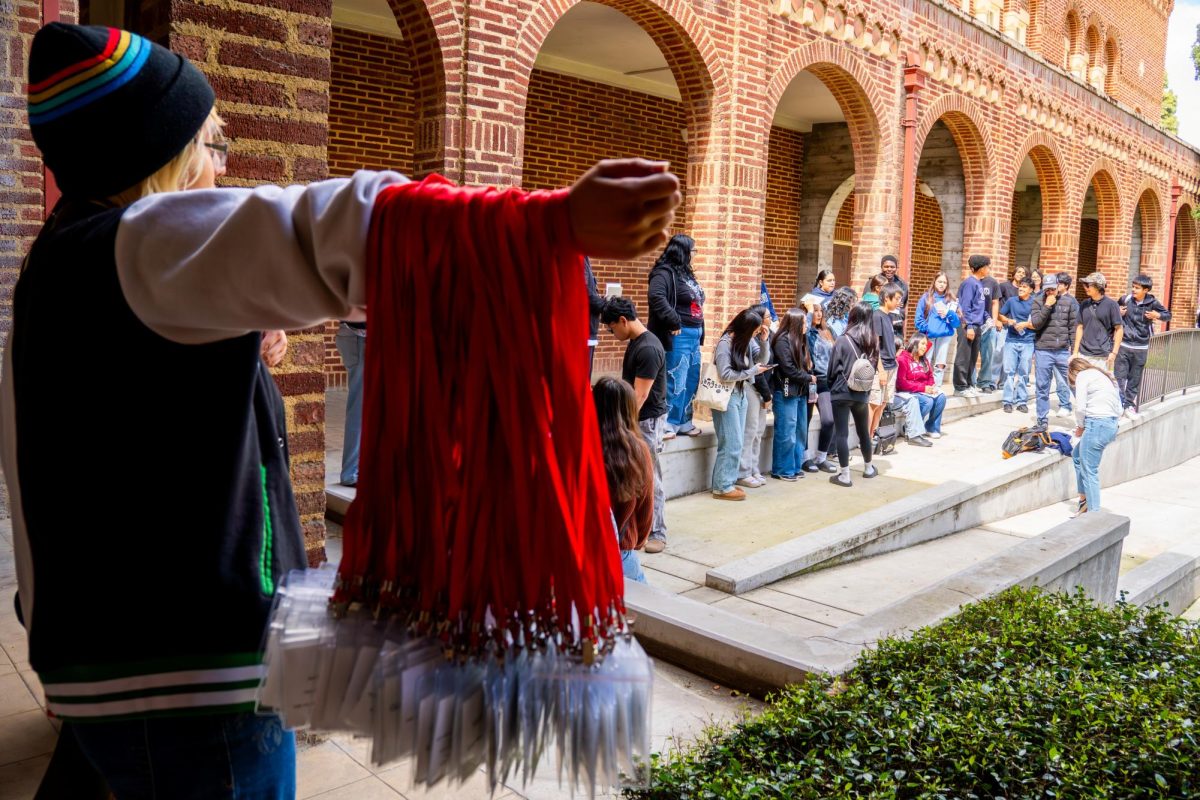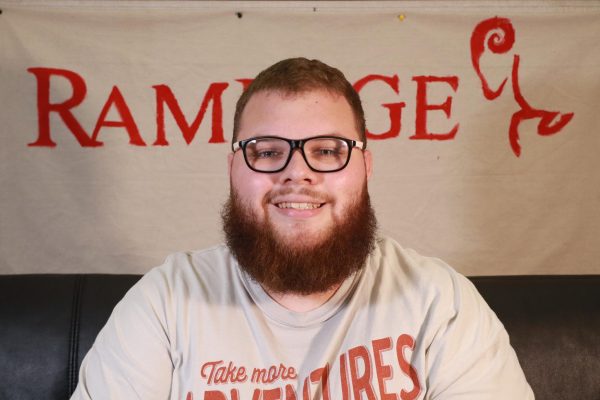Nov. 5 is coming up in Fresno County where federal, state, and local elections will be held from state assembly to the presidency.
The highlight so far, this election season, has been the presidential election; but, local races are just as important despite being harder to distinguish.
We wanted to configure a voting guide for some of the elections happening in Fresno so that everyone can be informed on what they will be voting for this election.
All information regarding policy and candidates comes from their respective campaign websites and/or public statements in speeches, forums, and comments.
State Assembly District 27
Voters in Fresno, Madera, and Merced county will have the option of incumbent Democrat Esmeralda Soria or the Republican challenger, Joanna Rose Garcia to represent California’s 27th Assembly District.
What does an assembly member do?
The California State Legislator is split into two houses: the upper, the senate, having 40 legislators and the lower, the assembly having 80 legislators. Together they pass policy and legislation.
California assembly members are responsible for representing residents in their respective districts and proposing items like legislation and budgets along with being on committees to overlook state functions.
Esmeralda Soria
Assemblymember Esmeralda Soria was elected in November 2022 to represent California’s 27th Assembly District.
As a first-generation American and daughter of farmworkers, she understands hard work. Esmeralda helped her parents in the Central Valley’s fields and later worked her way through college and law school.
Before her election, she was a teacher, community advocate, and Fresno City Councilmember. On the Council, she focused on making the community safer, creating good jobs, building affordable homes, and improving parks.
Soria also secured millions of dollars for better water services, new health clinics, and local schools. Now in Sacramento, she continues to fight for her community’s needs.
On housing
Esmeralda Soria aims to raise awareness about the challenges faced by families in small rural communities such as Lindsay, Livingston and Mendota. Her primary goal has been to support policies that streamline environmental regulations, which have historically hindered the construction of more housing.
In her first two years, she successfully secured $100 million to collaborate with Merced College and UC Merced, focusing on providing affordable housing for students in rural areas. She emphasizes the importance of ensuring that students do not have to worry about housing costs while pursuing their education, as this can greatly impede their success.
Soria wants to obtain resources for both affordable and market-rate housing, which are properties that are rented or owned at market rates by renting at the usual rates or by buying the property at its full value.
She advocates for first-time homeownership. This commitment is reflected in her support for the Cal Dream Home program, which seeks to assist more families in achieving homeownership.
Upon a reelection for a second term, she intends to focus on creating more opportunities for rural communities, particularly addressing the urgent water challenges in areas like Livingston.
On homelessness
Esmeralda Soria highlighted that the City of Fresno received millions of dollars to renovate hotels into low-barrier shelters. Now that she’s in Sacramento, Soria has supported policies to address homelessness, but the governor vetoed legislation that would hold local cities accountable for reducing homelessness.
Representing 14 cities, she pointed out that only three have received significant funding for homelessness. Cities like Mendota, Livingston, and Firebaugh are also facing homelessness issues but have not received any assistance from the state of California, according to Soria.
She wants to change that so these communities can invest in supporting solutions to homelessness. If resources are provided, localities must be held accountable for transitioning individuals from temporary to permanent housing.
She emphasizes the need for more permanent housing of all types, including affordable and market-rate apartments and homes. Soria believes the state of California must hold cities accountable for building more housing, as local communities are contributing to their own challenges.
In her district, Fresno City Council passed an anti-camping ordinance, which can fine unhoused individuals up to $1000 and/or have a jail sentence up to one year, after the Grants Passing decision by the Supreme Court.
On healthcare
Soria wrote Assembly Bill 2104 which would have allowed for community colleges to grant bachelor’s degrees in nursing to help address the shortage of nurses in the San Joaquin Valley. Which ended with Governor Gavin Newsome vetoing the bill.
Soria’s efforts on healthcare are being directed towards the reopening of the Madera Community Hospital.
Endorsements
- California Association of Highway Patrolmen
- California Democratic Party
- California High School Democrats
- California Police Chiefs Association
- California Statewide Law Enforcement Association
- California Women’s List
- Democrats at UC Merced
- EQCA
- Fresno Democratic Women’s Club
- Fresno Deputy Sheriff’s Association
- Fresno Police Officers Association
- HONOR PAC
- Latinas Lead
- Madera Democratic Club
- Planned Parenthood
- Women’s Political Committee
- Biola Community Service District Board Member, Kirk Ramos
- Central Unified School District Trustee, Naindeep Singh
- Central Unified School District Trustee, Philip Cervantes
- Firebaugh Mayor Felipe Perez
- Fresno City Councilmember Annalisa Perea
- Fresno City Councilmember Miguel Arias
- Fresno City Councilmember Nelson Esparza
- Fresno City Councilmember Tyler Maxwell
- Fresno County Supervisor Brian Pacheco
- Fresno County Supervisor Buddy Mendes
- Huron Mayor Rey Leon
- Kerman City Mayor Maria Pacheco
- Livingston Mayor Jose A. Moran
- Madera City Councilmember Jose Rodriguez
- Madera City Councilwoman Cece Gallegos
- Madera City Mayor Pro Tem Anita Evans
- Madera City Vice-Mayor Elsa Mejia
- Madera County Supervisor Leticia González
- Madera Mayor Santos García
- Mendota City Councilmember Jose Alonzo
- Mendota City Councilmember Libertad Lopez
- Mendota City Mayor Victor Martinez
- Merced City Councilwoman Bertha Perez
- Merced Mayor Matt Serrato
- Senator Anna Caballero
- AFSCME 3299
- CAL FIRE Local 2881
- California Labor Federation
- California Nurses Association
- California Professional Firefighters
- California Teachers Association
- Faculty Association of California Community Colleges
- FMTK Building Trades
- Foremen’s Union Local 94
- Fresno Firefighters – IAFF Local 202
- NorCal Carpenters
- North Valley Labor Federation
- UDW/AFSCME Local 3930
Joanna Garcia Rose
Joanna Garcia Rose recalls spending nights at the kitchen table with her father, who was pursuing his education. He taught her that life can be tough, but with hard work, she could achieve anything. This belief motivates her run for Assembly, aiming to create opportunities for those who strive to get ahead.
During her first year of high school, Joanna was seriously injured in a car accident and was life-flighted to Oakland Children’s Hospital. This experience deepened her understanding of the broken healthcare system and fostered compassion for those facing health challenges.
After years of recovery, she graduated from Fresno State University with a degree in agricultural business. In her twenties, she farmed corn, oat hay, and alfalfa while running a water drilling business, facing numerous unfair regulations. Despite her efforts, she lost her farm, a common struggle for many farmers in the Valley.
Joanna later worked as a tax auditor for the California Employment Development Department. After marrying and starting a family, she became concerned about the struggles of small businesses during the COVID-19 pandemic. This led her to run for State Assembly, committed to being part of a new generation focused on positive change in California.
On housing
Joanna Garcia Rose thinks there are lots of problems in California, especially with one political party in control for a long time. Even though they’re in charge, people are still having trouble finding affordable homes. She believes that complicated rules make it hard to build new houses. With prices going up all the time, it’s difficult to create homes that families can afford. Joanna points out that when a meal can cost over $30, it’s really tough to make cheap housing.
She says we need to help businesses do well because high energy costs and not enough water make it hard for builders to work in California. We should focus on finding long-term solutions for water and housing issues to help the state improve.
Joanna doesn’t like new laws that lack money to help first-time homebuyers. With California facing a $70 billion deficit, she questions where the money will come from. She wants to simplify the laws so it’s easier for builders to make homes in California.
On homelessness
Joanna Garcia Rose talks about how important it is to be responsible and accountable when dealing with homelessness. She thinks this issue should have been taken seriously before the state lost a lot of money. Now, with the state having less money to spend, she wonders how they can keep helping with homelessness without making sure the money is used properly. If a community gets money but still has more people without homes, it means the money isn’t being used the right way.
From her time working as a tax auditor during the pandemic, just giving money to problems isn’t enough; it often leaves taxpayers paying for it, according to Rose. Even though a lot of money has been spent, homelessness has gotten worse.
Joanna believes we need to provide good support for people, especially since mental health issues, drug problems, and crime are big reasons for homelessness. She says that being responsible should apply to politicians, the groups getting money, and people who break the law.
On healthcare:
Joanna Rose Garcia thinks healthcare should be easier to access and more affordable for everyone in the Valley. She emphasizes the importance of a strong doctor-patient relationship, which helps ensure that individuals receive the best care possible for their needs.
Garcia advocates for fully funding Medi-Cal, which provides vital medical services to many in the community. By fully supporting this program, more residents can access the care they need without the burden of high costs or limited availability.
She also suggests that the state help pay off student loans for doctors and medical staff who commit to working in the Valley. Additionally, Garcia urges both state and federal governments to provide more support to keep local hospitals open, ensuring essential services for all.
Endorsements
- Howard Jarvis Taxpayers Association PAC
- Former Secretary of State Bill Jones
- Senator Shannon Grove
- Congressman David Valadao
- Congressman Tom McClintock
- Congressman John Duarte
- Former Congressman George Radanovich
- Former Congresswoman Connie Conway
- Assembly Minority Leader James Gallagher
- Assemblyman Joe Patterson
- Assemblyman Juan Alanis
- Assemblyman Bill Essayli
- Assemblyman Diane Dixon
- Assemblyman Phillip Chen
- Assemblyman Tom Lackey
- Assemblyman Heath Flora
- Assemblyman Tri Ta
- Assemblyman Jim Patterson
- Assemblyman Vincent Fong
- Assemblyman Devon Mathis
- Assemblyman Laurie Davies
- Former Assemblyman Frank Bigelow
- Merced County Sheriff Vernon Warnke
- Kern County Sheriff Mike Boudreaux
- Former Fresno Sheriff Margaret Mimms
- Fresno County Supervisor Nathan Magsig
- Merced County Supervisor Daren McDaniel
- Merced County Supervisor Lloyd Pareira
- Madera County Supervisor Jordan Wamhoff
- Madera County Supervisor David Rodgers
- Atwater Police Chief Michael Salvador
- Chowchilla Mayor Kelly Smith
- Coalinga Mayor James Horn
- Los Banos Councilmember Deborah Lewis
- Coalinga Councilmember Nathan Vosbury
- Chowchilla Union High School District Trustee Brandon Moore
- Mendota Unified School District Trustee Lupe Flores
Fresno County Board of Supervisors District 2
Voters that reside as far south as Bullard and Figarden and as far north as Friant along with California State University Fresno will be voting between Republican incumbent Steven Brandau and Republican challenger Gary Bredefeld.
What does a County Board of Supervisors do?
A county board of supervisors typically serves as the legislative and executive body for a county. They are responsible for things like overseeing the county’s budget, allocating funds for various departments and services, reviewing and approving zoning changes, land use plans, and development proposals, and supervising various county departments, ensuring they operate effectively and within budget.
Simply put, the board is the governing body to all county services, such as law enforcement, property records and tax collection, public health, social services, elections administration, and more.
Steven Brandau
Steve Brandau was born and raised in Selma, He moved to Clovis to attend Fresno State University, where he earned a Bachelor of Arts in English with a minor in history. After nearly 30 years in Fresno, he founded a small business serving customers from Visalia to Merced, according to his campaign website.
Brandau entered politics in 2012, winning the District 2 seat on the Fresno City Council. A proponent of limited government, he advocates for reducing red tape and lowering taxes to promote commerce.
As a supervisor for District 2 on the Fresno County Board, elected in 2019 and re-elected in 2020.
Brandau wants to protect North Fresno neighborhoods from high-density development pressures and works for fair distribution of tax revenues. He is dedicated to supporting the business community and providing essential services to North Fresno County residents.
On social service funding
Brandau, who voted no on a harm reduction center, worked with the majority of the Board of Supervisors to get doctors who volunteer their time, formally at a cul-de-sac near Roding Park, and put them in a building to continue their work.
Brandau is also against the idea of the “housing first” model adopted during the Obama administration, he claims. which allows individuals to secure housing without requiring them to overcome their addictions first. He mentions Fresno’s current approach, specifically referencing Motel Drive, and suggests that similar problems continue to exist despite efforts to address them.
Additionally, Brandau emphasizes his commitment to supporting initiatives like the construction of a state-of-the-art kitchen for the Pillo House. He commends the social services department for their work but acknowledges the challenges in encouraging individuals to accept assistance, stating that the crisis on the streets remains significant.
On land use planning
According to Brandau, the city of Fresno focuses on creating homes and businesses, while the county mainly manages zoning for developers. He emphasizes that Fresno County is working to create affordable housing because there is a need for it.
Brandau notes that there is always room for improvement and that the county is open to new ideas that can help the community. From his experience at City Hall, he explains that building can be challenging, especially with state rules that affect affordable housing.
Brandau is also working on a project for an industrial park in the county, which could bring up to 40,000 jobs when it is fully built, according to him. He believes this will benefit nearby towns like Kerman and Selma.
On the county jail system
Brandau has the support from law enforcement, like Fresno County Sheriff John Zanoni and Fresno County District Attorney Lisa Smittcamp.
Brandau points out that after training, many correctional officers leave for better-paying jobs, which makes it hard to keep enough staff.
According to Brandau, they have given raises to these officers and received thanks from their leaders for doing so. Even though it’s tough to attract new people to these jobs because of higher pay in other fields, Brandau insists they are working hard to solve these problems.
Endorsements
- Fresno County Deputy Sheriffs’ Association
- Fresno County District Attorney Lisa Smittcamp
- Fresno County Sheriff John Zanoni
- Former Fresno County Supervisor Susan Anderson
- Former Fresno County Sheriff Margaret Mims
Garry Bredefeld
Garry Bredefeld, a retired clinical psychologist, moved from New York City to Fresno in 1982 to pursue his Ph.D., which he completed in 1985. After earning his degree, he served as a naval lieutenant, training at Bethesda Naval Hospital and then at the Naval Medical Clinic in Pearl Harbor. Bredefeld met his wife, Susan, shortly after returning to Fresno, and they are celebrating 41 years of marriage.
Bredefeld opened a private practice and worked at the Veterans Hospital for 27 years. He served on the Fresno City Council from 1997 to 2001, where he helped develop a multipurpose stadium and improve public safety.
After a brief run for mayor, he returned to his career until winning a city council seat eight years ago with 65% of the vote.
On social services
Garry Bredefeld expresses dissatisfaction with the operation of social services in addressing the homelessness crisis in Fresno. Despite efforts to enact supportive legislation, including measures for businesses and an anti-camping ordinance.
Bredefeld says there is a “subset of the homeless population,” that is not seeking help and emphasizes the need for accountability and collaboration with state services.
Another service Bredefeld criticizes is a county-supported harm reduction program involving needle and pipe exchanges, arguing that it perpetuates drug addiction rather than helping individuals recover.
Drawing on his background as a psychologist, he asserts that providing drug users with paraphernalia does not contribute to their well-being but instead maintains their addiction. But according to the National Institutes of Health, less overdoses and mortalities happen at these places.
On land use planning
Bredefeld talks about land use and points out problems with how the county develops land; he calls it “leapfrog development,” which makes it hard to provide services to people. He stresses that it’s important to grow in a planned way, known as “smart growth,” so new buildings and homes are manageable and fit well in the community.
He also says the county needs to do a better job with environmental reports, mentioning that they are using old information. He explains that the city is suing the county because they believe it’s important to understand how new developments will affect the area.
While he supports development as necessary for a healthy community, Bredefeld insists that it should be done carefully and thoughtfully. He wants to encourage smart growth in the county, just as he has worked on in the city.
On the county jail system
Over the course of his campaign, Bredefeld visited jails and the challenges that correctional officers face. He says they need more help and better pay because their job is very tough, especially since they work with dangerous people.
The District Attorney’s office is short about 20 lawyers and stresses the need to support public defenders and sheriffs, according to Bredefeld. He wants to be a strong supporter of law enforcement at a county level, just like he has been at the city level.
He supports the opening of a new jail and believes a community can’t be safe without enough resources and staff for law enforcement. Bredefeld promises to keep fighting for these important needs to help keep the community safe.
Endorsements
- Fresno Mayor Jerry Dyer
- Service Employees International Union (SEIU) 2015
- Fresno City Firefighters
- Fresno City Councilmember Tyler Maxwell
- Former Fresno Mayor Alan Autry
- Fresno City Employees Association
- Tulare County Sheriff Mike Boudreaux
- Fresno California Republican Assembly
- Fresno County Republican National Hispanic Assembly
- Fresno Central Labor Council
- Northern California Carpenters Union
Fresno County Board of Supervisors District 3
District 3 covers areas that stretch from Fresno City College and the Tower District to the Fresno-Yosemite International Airport. It covers Downtown Fresno and unincorporated communities like Calwa and Mayfair. It also borders Fresno State.
Sal Quintero
Sal Quintero was born in Fresno and has lived in the area since. He became a Fresno City Councilmember in 1995 to represent District 5 in southeast Fresno. Quintero served for 8 years in the role.
He returned to the seat in 2010 due to changes in the term limit rules and was re-elected in 2014. Quintero came to the Fresno County Board of Supervisors District 3.
He is now in a 2024 re-election campaign against Fresno City Councilmember and former chief of staff to his office, Luis Chavez.
Homelessness
Quintero said he is aware of his constituents’ concerns with homelessness. He said that the county is already doing a lot to tackle the issue.
He pointed to the lack of proactivity before his tenure and that he has been able to acquire grants and is making efforts to address homelessness.
He voted in favor of the anti-encampment ordinance that would impose financial penalties of $500 in fines and or up to 6 months in jail.
Quintero did not offer new solutions and feels that there are no additional courses of action that the county is not currently taking to handle homelessness.
Housing
Quintero believes in implementing some forms of rent control. He emphasizes that the county and the broader community needs to work with property owners to see how rent control could be implemented.
He does not believe it to be the county’s responsibility to construct affordable housing but to contract developer companies to do so.
Quintero still pointed to repurposing projects such as turning the defunct Arthur’s Toy Store into housing units as part of the efforts of the county.
Social Services
Quintero acknowledges that services are a big responsibility of the county. He said that the county does a lot of work and spends most money to fund social services including behavioral health.
He said that since the foster youth scandal, in which foster youth were found to be sleeping on floors and desks of county offices, the county has improved.
A new director for foster care has been put in place while Quintero also claims that the county is working to direct youth towards housing accommodations.
Endorsements
- Fresno County Sheriff John Zanoni
- Fresno County District Attorney Lisa Smittcamp
- Assemblymember Jim Patterson
- Former Fresno City Councilmember Paul Caprioglio
- Former Fresno City Councilmember Clint Olivier
Luis Chavez
Luis Chavez is from Fresno and was first elected to Fresno City Council in 2016 as the District 5 representative after Quintero left the position. He had also been the chief of staff for Quintero’s office.
He had also served on the Fresno Unified School District Board of Trustees.
Chavez is now running for the County Board of Supervisors District 3 seat against his former employer Quintero.
Homelessness
Chavez said that supporting foster youth was important to solving homelessness since they are at a higher rate of being unhoused compared to other groups.
He wants to set a goal of 1,000 new beds for unhoused individuals in his first 100 days in office.
As a city councilmember, Chavez supported an anti-camping ordinance which prohibits individuals from sleeping, lying down or to camp in public spaces. Violations would result in a $1000 fine and or one year in jail.
Housing
Chavez opposes rent control measures and feels that housing construction is more important.
He believes that new homes should be built in order to provide the market with more options as an alternative to bring prices down for buying and renting.
Chavez said that there needs to be less intervention and costs to build which prevent the creation of more affordable housing in larger volumes.
He also said that multi-family units and apartment type structures are important priorities in terms of types of housing to construct.
Social Services
He places emphasis on increasing foster care services and bettering the systems through making it easier for people to become foster parents. He also felt that the county had not done enough to invest in social workers who he said were overloaded with work.
Chavez criticized the county for the case of the foster youth having to sleep in county offices.
He also felt there needed to be updates and modernization of the healthcare system in Fresno County alongside foster services.
The pandemic’s effects on his city council district led to the construction of two clinics and Chavez said the county supervisor was important to making a change in the healthcare system.
Endorsements
- Fresno City Councilmember Annalisa Perea
- Fresno City Councilmember Tyler Maxwell
- Fresno City Councilmember Miguel Arias
- Fresno Mayor Jerry Dyer
- SEIU 521
- SEIU 2015
- Amalgamated Transit Union
- Central Labor Council
Fresno City Council District 6
In the northernmost areas of Fresno, Fresno City Council District 6 has no incumbent running for the seat. Instead, attorney Roger Bonakdar and U.S. Marine Corps Reserve officer Nick Richardson will be running after a four-way race narrowed in the March primaries. The seat previously belonged to Gary Bredefeld, who is reaching his term limit and is running for Fresno County Board of Supervisors District 2.
What does a council member do?
The Fresno City Council makes important decisions about city services like water, sewer, police, and fire protection. They decide how these services are managed and funded. The council also sets rules that city workers follow and makes plans for how land can be used in the city, which includes things like parks and buildings.
Roger Bonakdar
Bonakdar is a graduate of Clovis Unified schools and went to college at UC San Diego and Santa Clara School of Law. He came back to Fresno to serve as a legal advocate for residents and businesses.
He’s a personal injury attorney in Fresno and is currently representing Bitwise workers in lawsuits against the tech company. Bonakdar was a registered Democrat before switching to No Party and then finally to Republican.
On the council, Bonakdar says he will fight for safer neighborhoods, solve Fresno’s homelessness crisis, build a more vibrant Fresno economy, and deliver northeast Fresno’s fair share of resources, according to his website.
On safer neighborhoods
Bonakdar signed the Public Safety Budget Pledge,2024-25 budget proposes a total of $26 billion for the operation of public safety programs and will only vote for budgets that include the hiring of new firefighters and police officers.
On homelessness
According to his website, Bonakdar will lead the charge to strengthen the city’s law enforcement and social services while also getting homeless residents off Fresno’s streets.
Bonakdar also says he’ll work collaboratively with Fresno’s nonprofit and faith community to help bolster Fresno’s treatment and housing options to ensure “these people [homeless]” are able to get back on their feet and onto productive lives, according to his website.
On Fresno’s economy
Bonakdar says he’ll cut red tape, reduce city fees and taxes, and work to recruit major job creators to Fresno, according to his website.
Endorsements
- The Fresno Police Officers Association
- Fresno City Firefighters, IAFF Local 202
- The Fresno Chamber of Commerce
- The Fresno Deputy Sheriff’s Association
- Fresno County Sheriff John Zanoni
- Fresno County Sheriff Mike Boudreaux
- Fresno County Sheriff Margaret Mims (Ret.)
- Fresno County Sheriff Steve Magarian (Ret.)
- Fresno Fire Chief Kerri Donis (Ret.)
- Madera County DA Sally O. Moreno
- Madera County Supervisor Jordan Wamhoff
- Michael Der Manouel, Jr., Chairman Emeritus of Lincoln Club of Fresno County
- Fresno City Councilman Mike Karbassi
- Fresno City Council President Tyler Maxwell
- Fresno Mayor Lee Brand (Ret.)
- Fresno City Councilman Jerry Duncan (Ret.)
- Fresno City Councilman Paul Caprioglio (Ret.)
- Fresno City Councilmember Mike Karbassi
- Fresno City Councilmember Tyler Maxwell
- San Joaquin Valley Taxpayers Association
Nick Richardson
Nick Richardson was born in Clovis and has served in the U.S. Marine Corps since 2013. He has a bachelor’s degree from Virginia Military Institute since the same year. Prior to running, he was a consultant and owned a consulting business, NRICH LLC.
Homelessness
Richardson said the anti-camping ordinance passed by Fresno City Council was an important step for facing homelessness. He said that drugs and weapons trafficking occurs at homeless encampments and are generally unsafe.
He highlighted the necessity to provide services to homeless people with education and substance rehabilitation. It was also important to de-stigmatize mental health as a way to solve homelessness.
Richardson also claims the city council has shifted the responsibility of funding mental health institutes to the county rather than addressing the issue themselves.
He supports funding more for the staffing of social workers alongside collaboration between existing non-profits and Fresno County mental health services.
He also supports project labor agreements that would make it cheaper for developers to build housing without the intervention of unions.
Public Safety
According to his website, Richardson’s first priority is public safety.
From his door-to-door campaign, Richardson noticed “Fresno doesn’t feel as safe as it used to feel.” He attributes this to the “homelessness epidemic” which has led to an outbreak of crime in Fresno.
Richardson believes that the community does not need a candidate who makes a living getting criminals off the hook. Instead, they need a candidate who has focused on holding people accountable and creating systems that can overcome wrongdoers and promote success.
On business
Richardson thinks businesses in Fresno should feel welcome and supported so they can grow and hire local people. A strong economy depends on many different businesses, like factories and small shops.
He says that the COVID-19 pandemic hurt the economy in the Valley, and many businesses are still having a tough time recovering. Richardson believes we need to tackle these problems to help the community do better.
His goal is to speed up these processes so both big and small businesses can succeed, helping to create a lively local economy for everyone.
Endorsements
- Clovis Mayor Lynne Ashbeck
- Fresno County Assessor-Recorder Paul Dictos
- Kingsburg Police Department Chief of Police Neil Dadian
- Clovis Unified School District Board Member Deena Combs-Flores
- Fresno Unified School District Board Member Valerie Davis
- Fresno Unified School District Former Board Member Terry Slatic
- Fresno City Council Former District 3 Council Member Oliver Baines
- Fresno City Council Former District 4 Council Member and Former Director of Economic Development Larry Westerlund
- Fresno City Council Former District 3 Council Member and Downtown Fresno advocate Craig Scharton
- Fresno City Council Former Candidate District 6 Molly Fagundes-Johnston
- Fresno City Council Former Candidate District 6 Raj Sodhi-Layne
- Fresno Police Sergeant Danny Kim
- Clovis Veterans Memorial District CEO Lorenzo Rios (Ret.)
- New Covenant Community Church Lead Pastor Scott Borman
- Covenant Worship Center Lead Pastor AJ Nunez
- NewPolitics
- Fresno County Libertarian Party
- Log Cabin Republicans
Propositions
California propositions are ballot measures that allow voters to decide on various legislative changes, amendments to the state constitution, or specific policy issues. These propositions can be proposed by the state legislature or brought forward by citizen initiatives.
Each proposition typically addresses a specific issue, such as education funding, tax changes, healthcare, or criminal justice reform. Voters can either approve or reject these measures during elections. If a proposition is approved, it becomes law, while a rejected proposition does not take effect.
This is unique to California, as every state doesn’t have its citizens vote on legislation.
Prop 2
This proposition would issue $10 billion to K-12 schools and community colleges for the modernization and improvement of school facilities. Lower-funded districts and disadvantaged communities would be prioritized and handed more funding.
According to the Public Policy Institute of California, 38% students are at schools who don’t meet the minimum safety requirement that the state allows for. This can lead to low attendance and low performance from students.
Prop 3
If passed, it will declare marriage as a fundamental right in the California Constitution and remove language that states marriage to be between a man and a woman. While Obergefell v. Hodges, which ruled that the fundamental rights to marriage does include same-sex marriage, the state of California has had a history with banning same-sex marriages in 2008.
Right now, the language in the California Constitution is not updated to include same-sex marriage. In 2020, Nevada became the first state to enshrine same-sex marriage in their state’s constitution.
Prop 4
If passed, it would issue $10 billion in bonds to support building water infrastructure, prevent forest fires and environmental protections.
About $3.8 billion would be spent on water projects — half to improve water quality, the other on protecting the state from floods and droughts, and restoring rivers and lakes. The rest will be on wildfire and extreme heat projects, parks and wildlife projects, coastal lands, bay and ocean protections, clean energy, and agricultural projects.
Prop 5
A yes vote would lower the threshold for bond measures that would support building affordable housing and public projects from the current 66.7% requirement to 55%.
The Legislature voted to put Prop. 5 on the ballot last fall. But after a bit of political wrangling, lawmakers passed another measure to make a few last-minute changes. The proposition now only covers bonds. It also now includes a ban on local governments using the money to buy up existing single-family homes to make them into affordable units.
Prop 6
Passing this proposition would prohibit the use of forced labor as a means of punishment for a crime. The Department of Corrections and Rehabilitations would give credit used to lower prison sentences for incarcerated individuals who work voluntarily.
Legislators considered a similar measure in the 2022 midterms, but the proposition tanked after the California Department of Finance estimated that it would cost about $1.5 billion annually to pay California’s minimum wage to prisoners. Now, they have worked around that barrier.
Nearly 40,000 who complete a variety of tasks such as construction, yard work, cooking, cleaning and firefighting; most of them earn less than 74 cents an hour, although inmate firefighters can earn as much as $10 a day. California’s minimum wage is $16 an hour, and state law permits the corrections department to pay up to half of that rate.
Prop 32
The passage of this prop would raise the minimum wage to 18$ for all employers by 2026. It would allow the wage to be adjusted annually according to costs of living.
According to the MIT Living Wage Calculator, even in the cheapest California county (Modoc), a single adult with no children would need to make at least $20.32 an hour to comfortably afford the basics. The statewide average is $27.32.
Prop 33
Passage would allow cities to place rent control on any type of housing including single-family houses or apartment blocks no matter the date of construction. This repeals the Costa-Hawkins Rental Housing Act which barred rent control on housing built after Feb. 1, 1995.
Supporters of Prop. 33 say that doesn’t go far enough. They hope this finally is the year to upend the decades-old rules controlling rent control. But landlord groups oppose the idea and have been willing to spend to convince voters that rent control is not the answer to the state’s housing crisis.
Prop 34
Implementation would require healthcare providers who have spent $100 million over a 10-year period on anything not related to direct patient care to spend 98% of their federal prescription program on patient care only.
This seems to target only one organization: The AIDS Healthcare Foundation.
Prop 35
This would renew a tax on managed care organizations that help people find health insurance. These revenues would be used to support increased Medi-Cal Programs.
Today, more than 14 million Californians, about a third of the state population, use Medi-Cal. Over the last 10 years, payments to doctors and other Medi-Cal providers have increased only incrementally, if at all. According to the Kaiser Family Foundation, California’s reimbursement rate falls in the bottom third nationally.
Prop 36
Approval would re-classify some petty theft and possession of some drugs from misdemeanors to treatment-mandated felonies. Prison sentences would be increased depending on previous criminal history.
Ten years ago, voters approved Proposition 47, which sought to reduce California’s prison overcrowding. But, during the pandemic, shoplifting and commercial burglaries went up. Statewide, the Public Policy Institute of California found that reported shoplifting of merchandise worth up to $950 soared 28% over the past five years.








